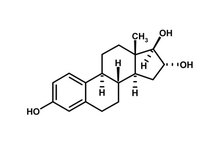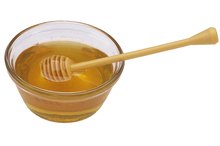Does Coconut Increase Cholesterol Levels?
Coconut is interesting in that it loosely fits the classification requirements of a fruit, a nut and a seed. According to the Library of Congress, however, a coconut is technically a drupe, or a pitted fruit that features a hard stone middle encasing a single seed. In raw form, a coconut has three layers that include the outer exocarp, the middle mesocarp and the inner endocarp layer. Although coconut has a high nutritional value, misconceptions concerning its saturated fat content may lead you to believe it can increase cholesterol levels.
Identification
Although coconut itself is a cholesterol-free food, the saturated fat content in all forms of coconut is high, with 69 percent saturated fat in both dried and creamed forms and 24 percent in coconut milk. As Harvard School of Public Health notes, most saturated fats affect total blood cholesterol by raising the level of low-density lipoproteins, or bad, cholesterol, as well high-density lipoproteins, or good cholesterol. According to author and nutritionist Dr. Mary G. Enig, the molecular composition of saturated fat in coconut and coconut oil make it an exception to the general rule.
Structure
The Nutritional Value of Coconuts
Learn More
The Coconut Research Center states that the fatty acid molecules in coconut are different due to the length of the carbon chain of each molecule. According to Nutrition Review, most saturated fats are long chain fatty acids containing 12 to 18 carbon atoms. Medium chain fatty acids are shorter, having only six to 10 carbon atoms. As Enig notes, coconut oil contain approximately 57 percent medium chain fatty acids, with 50 percent being lauric acid and 6 to 7 percent capric acid.
- The Coconut Research Center states that the fatty acid molecules in coconut are different due to the length of the carbon chain of each molecule.
- As Enig notes, coconut oil contain approximately 57 percent medium chain fatty acids, with 50 percent being lauric acid and 6 to 7 percent capric acid.
Significance
Differences in size significantly affect how your body metabolizes long and medium chain fatty acids and determines the effect they have on cholesterol. Long chain fatty acids absorb into the bloodstream where they can have an immediate effect on blood cholesterol levels. The smaller, medium chain fatty acids, however, go directly to your liver where they become a source of quick energy rather than a factor in raising cholesterol. According to Bruce Fife, author of “Coconut Cures: Preventing and Treating Common Health Problems with Coconut,” coconut oil behaves more like a carbohydrate than a fat.
- Differences in size significantly affect how your body metabolizes long and medium chain fatty acids and determines the effect they have on cholesterol.
- The smaller, medium chain fatty acids, however, go directly to your liver where they become a source of quick energy rather than a factor in raising cholesterol.
Expert Insight
Chia Seeds & Amino Acids
Learn More
In addition to the fatty acid composition of coconut and its effect on cholesterol, a study published in 2004 in the "Journal of Medicinal Food" showed a connection between the fiber contained in coconut flakes and a reduction in blood serum cholesterol. The study used coconut flour, a good source of both soluble and insoluble fiber and got results that showed a significant reduction in both total cholesterol levels and LDL cholesterol levels.
Considerations
Coconuts provide nutrition via meat, juice, milk and oil and are a good source of protein, fiber, vitamin C, thiamin and folate, and the minerals calcium, iron and phosphorous. Its high nutritional value, combined with numerous additional health benefits lead the Coconut Research Center to list coconut as a functional food, or a food that provides benefits beyond nutrition.
Related Articles
References
- Library of Congress: Everyday Mysteries: Is Coconut, a Fruit, Nut or Seed?
- Nutrition Review: Medium Chain Triglycerides
- Coconut meat, fresh. USDA FoodData Central. 4/1/2019
- Mcrorie JW, Mckeown NM. Understanding the Physics of Functional Fibers in the Gastrointestinal Tract: An Evidence-Based Approach to Resolving Enduring Misconceptions about Insoluble and Soluble Fiber. J Acad Nutr Diet. 2017;117(2):251-264. doi:10.1016/j.jand.2016.09.021
- Siri-tarino PW, Sun Q, Hu FB, Krauss RM. Saturated fat, carbohydrate, and cardiovascular disease. Am J Clin Nutr. 2010;91(3):502-9. doi:10.3945/ajcn.2008.26285
- Boateng L, Ansong R, Owusu WB, Steiner-Asiedu M. Coconut oil and palm oil's role in nutrition, health and national development: A review. Ghana Med J. 2016;50(3):189–196.
- Eyres L, Eyres MF, Chisholm A, Brown RC. Coconut oil consumption and cardiovascular risk factors in humans. Nutr Rev. 2016;74(4):267–280. doi:10.1093/nutrit/nuw002
- Chinwong S, Chinwong D, Mangklabruks A. Daily consumption of virgin coconut oil increases high-density lipoprotein cholesterol levels in healthy volunteers: a randomized crossover trial. Evid Based Complement Alternat Med. 2017;2017:7251562. doi:10.1155/2017/7251562
- Patil, U, Benjakul, S. Coconut Milk and Coconut Oil: Their Manufacture Associated with Protein Functionality. J Food Sci. 2018;83. doi:10.1111/1750-3841.14223
- Wang, Y, Liu, A, Han, Y, et al. Medium Chain Triglycerides enhances exercise endurance through the increased mitochondrial biogenesis and metabolism.PLoS ONE.2018;13(2):e0191182. doi:10.1371/journal.pone.0191182
- Mumme K, Stonehouse W. Effects of medium-chain triglycerides on weight loss and body composition: a meta-analysis of randomized controlled trials. J Acad Nutr Diet. 2015;115(2):249-63. doi:10.1016/j.jand.2014.10.022
- Prior, I,Davidson, F, Salmond, C, et al. Cholesterol, coconuts, and diet on Polynesian atolls: a natural experiment: the Pukapuka and Tokelau island studies. Am J Clin Nutr. 1981;34(8):1552-61. doi:10.1093/ajcn/34.8.1552
- Sankararaman S, Sferra TJ. Are we going nuts on coconut oil?. Curr Nutr Rep. 2018;7(3):107-115.doi: 10.1007/s13668-018-0230-5
- Li Y, Zheng Y, Zhang Y, Xu J, Gao G. Antioxidant activity of coconut (Cocos nucifera L.) protein fractions. Molecules. 2018;23(3):707. doi:10.3390/molecules23030707
- Antioxidants: In Depth. National Center for Complimentary and Integrative Health. Updated May 04, 2016
- Potential to react to coconut if one is allergic to other tree nuts. American Academy of Allergy, Asthma, and Immunology. Updated 4/25/19
- Anagnostou, K. Coconut Allergy Revisited. Children (Basel). 2017;4(10):85. doi:10.3390/children4100085.
- Sprouse AA, van Breemen RB. Pharmacokinetic Interactions between Drugs and Botanical Dietary Supplements. Drug Metab Dispos. 2016;44(2):162–171. doi:10.1124/dmd.115.066902
- Nuts, coconut meat, dried (desiccated), sweetened, shredded. USDA FoodData Central. Updated 4/1/2019
- Coconut milk. U.S. Department of Agriculture FoodData Central. 4/1/2019
- Coconut water. U.S. Department of Agriculture FoodData Central. 4/1/2019
- Coconut oil. U.S. Department of Agriculture FoodData Central. Updated 4/1/2019
Writer Bio
Based in Green Bay, Wisc., Jackie Lohrey has been writing professionally since 2009. In addition to writing web content and training manuals for small business clients and nonprofit organizations, including ERA Realtors and the Bay Area Humane Society, Lohrey also works as a finance data analyst for a global business outsourcing company.









